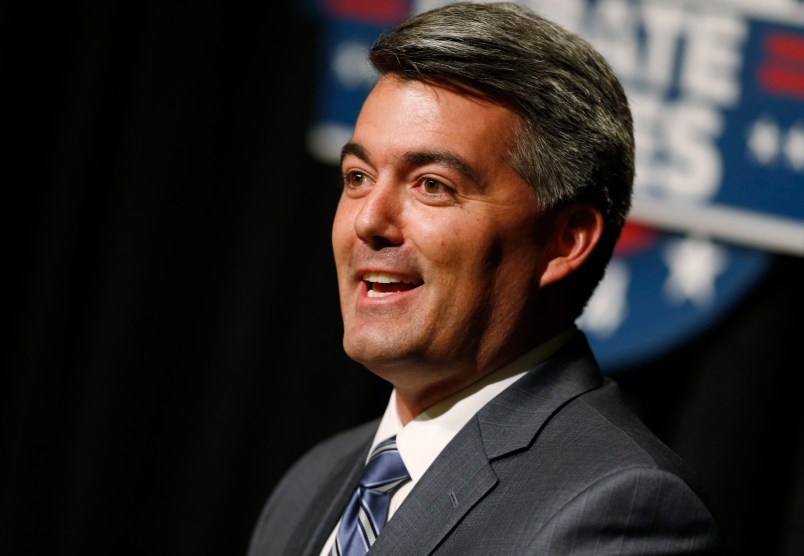NARAL Pro-Choice Colorado is taking a, shall we say, distinct message to Colorado men about Republican Senate candidate Cory Gardner: Watch out, guys. A condom shortage could be coming if Gardner has his way.
The message, being spread through online and radio advertising in the final week of the campaign, is the flip side of the women’s health message that has typified the anti-Gardner talking points. It isn’t just women who have a lot to lose in Gardner’s world, it says. There’s something at stake for you, too, guys.
“They’re all out,” a man’s voice says to start the 60-second radio spot.
“Did you try the corner market?” a woman replies.
“Of course,” the man says.
“Grocery store?” the woman asks.
“Sold out,” he says.
“Drug store?” she says.
“Come on,” he says.
“So everyone’s sold out of condoms?” the woman concludes. “Hmm. How did this happen?”
“Cory Gardner banned birth control,” the man laments. “And now it’s all on us guys. And you can’t find a condom anywhere.”
It might sound a little silly, rather hyperbolic or just plain weird. But the folks at Pro-Choice Colorado know that. That’s how you have to make a message stick in today’s political advertising environment, Karen Middleton, the group’s executive director, told TPM.
“Where we are with political ads, there’s lots of stuff that are overstated and you have to do that to cut through the nonsense,” Middleton said. “A little humor, a little edginess actually goes a long way for an audience that’s tired of seeing all this stuff.”
The campaign follows from Gardner’s prior support for anti-abortion “personhood” initiatives, which would define life as starting at conception and experts say would ban many common types of birth control.
The group is spending $200,000 on the radio spots and $40,000 on the accompanying online ads. The campaign is intended to help the state’s young men appreciate that they have a stake in the birth control debate, too — and put them in the shoes of somebody who can’t get access their usual contraceptive, Middleton said.
“We’re really trying to reach out to young men and make it clear that these restrictions to birth control that are often talked about as just a women’s issue, it’s really everybody’s issue,” she said. “This is the one message we haven’t seen.”









